Politics
Epstein Island Visitor Howard Lutnick Still Has His Job In Trump’s Cabinet

President Donald Trump is standing by his commerce secretary despite newly released documents indicating Howard Lutnick visited deceased pedophile billionaire Jeffrey Epstein’s notorious Caribbean island years after his criminal conviction and even as congressional calls for his resignation grow.
Lutnick, one of Trump’s top economic advisers, discussed traveling to Little St. James in 2012, according to documents released by the Justice Department in response to a new law demanding the investigatory files in the Epstein prosecution.
A follow-up email from Epstein’s assistant appears to confirm Lutnick did, in fact, travel to the island. The apparent trip took place four years after Epstein pleaded guilty to procuring a minor for prostitution.
The emails contradict earlier statements by Lutnick, the former CEO of investment bank Cantor Fitzgerald, suggesting he had cut off ties with Epstein and did not engage with him socially despite living next door to the financier in New York.
The Commerce Department released a statement attacking the news media — “This is nothing more than a failing attempt by the legacy media to distract from the administration’s accomplishments.” – and did not respond to follow-up questions about the apparent 2012 visit.
White House staff similarly dodged the specifics of HuffPost’s query. “The entire Trump administration, including Secretary Lutnick and the Department of Commerce, remains focused on delivering for the American people,” spokesman Kush Desai said.
Trump himself last week claimed he didn’t know anything about either Lutnick’s or billionaire and political benefactor Elon Musk’s presence in the Epstein files. “I have a lot of things I’m doing, you know, a lot of things. I don’t know. You mentioned two names. I’m sure they’re fine. I’m sure they’re fine,” he told reporters during an Oval Office photo opportunity. “Otherwise, there would have been major headlines.”
In fact, there have been headlines, particularly about Lutnick, whose anti-trade, pro-tariff advice has dominated Trump’s international economic policy since he returned to office. It also led to calls from Democratic members of Congress for Lutnick to resign his Cabinet post — calls that were joined Sunday by Kentucky Republican Thomas Massie, one of the House’s main proponents of the Epstein file legislation.
“Really, he should make life easier on the president, frankly, and just resign,” Massie told CNN.
Lutnick, who lived next door to Epstein in Manhattan, claimed in a podcast last year: “I was never in the room with him socially, for business or even philanthropy.”
That assertion, however, is belied by the DOJ documents, which include emails showing how the two of them were in business together and also socialised. In 2013, Epstein obtained the résumé of Lutnick’s nanny.
The trip to Little St. James, a tiny islet a few miles off St. Thomas, is noteworthy because Epstein’s victims describe it as a site where Epstein sexually assaulted them and offered them to some of his visitors.
There is no evidence that Lutnick interacted with any underage girls during his visit there or at Epstein’s townhouse next door to his own.
But Trump in the past has suggested simply visiting the island is worthy of condemnation, falsely attacking former President Bill Clinton for travelling there.
White House chief of staff Susie Wiles conceded in an interview published last year there was no evidence Clinton ― who was friends with Epstein before his 2008 arrest ― had set foot on Little St. James.
New Mexico Representative Melanie Stansbury, a member of the House Oversight Committee, said she and other Democrats on the panel would like to subpoena Lutnick to appear before the committee but that Republicans were not interested in doing so.
“Of course we would like to speak to Secretary Lutnick, and I personally believe that Mr. Lutnick needs to step down immediately,” she said.
Trump himself had a long friendship with Epstein, which included socialising with both him and his accomplice, Ghislaine Maxwell. Trump has claimed he ended the relationship after Epstein recruited young girls from his South Florida country club, Mar-a-Lago.
However, that recruiting took place starting no later than 2000, and Epstein remained a Mar-a-Lago member until 2007. When asked why it took him seven years to ban Epstein from his club, Trump claimed last year he did not understand the question.
And on Monday, Maryland Representative Jamie Raskin, the Democratic ranking member of the House Judiciary Committee, said an email between Maxwell and Epstein said that in the 2009 period, Epstein was still visiting Mar-a-Lago and had never been asked to stay away.
“And that was redacted for some … inscrutable reason,” he told reporters after reviewing some of the redacted files in their entirety at a DOJ office.
Trump has boasted that while he was invited to visit Epstein’s island, he never went and should be given credit for that. “I never had the privilege of going to his island, and I did turn it down. But a lot of people in Palm Beach were invited to his island. In one of my very good moments, I turned it down. I didn’t want to go to his island,” he told reporters last summer during his visit to his golf course in Scotland.
Epstein died by apparent suicide in 2019 a month after he was arrested on child sex trafficking charges. Maxwell was arrested the following year, was convicted at trial in late 2021 and in 2022 was sentenced to 20 years in federal prison.
She was last summer moved to a minimum-security “Club Fed” type prison camp after meeting with Deputy Attorney General Todd Blanche, who previously had been one of Trump’s numerous criminal defense lawyers.
Also Monday, Maxwell claimed her Fifth Amendment right not to incriminate herself during a videotaped deposition with the House Oversight Committee. Her lawyer said she would answer questions only if Trump granted her clemency.
HuffPost reporter Arthur Delaney contributed.
Politics
Corbyn accused of undemocratic behaviour over ‘backroom deal’
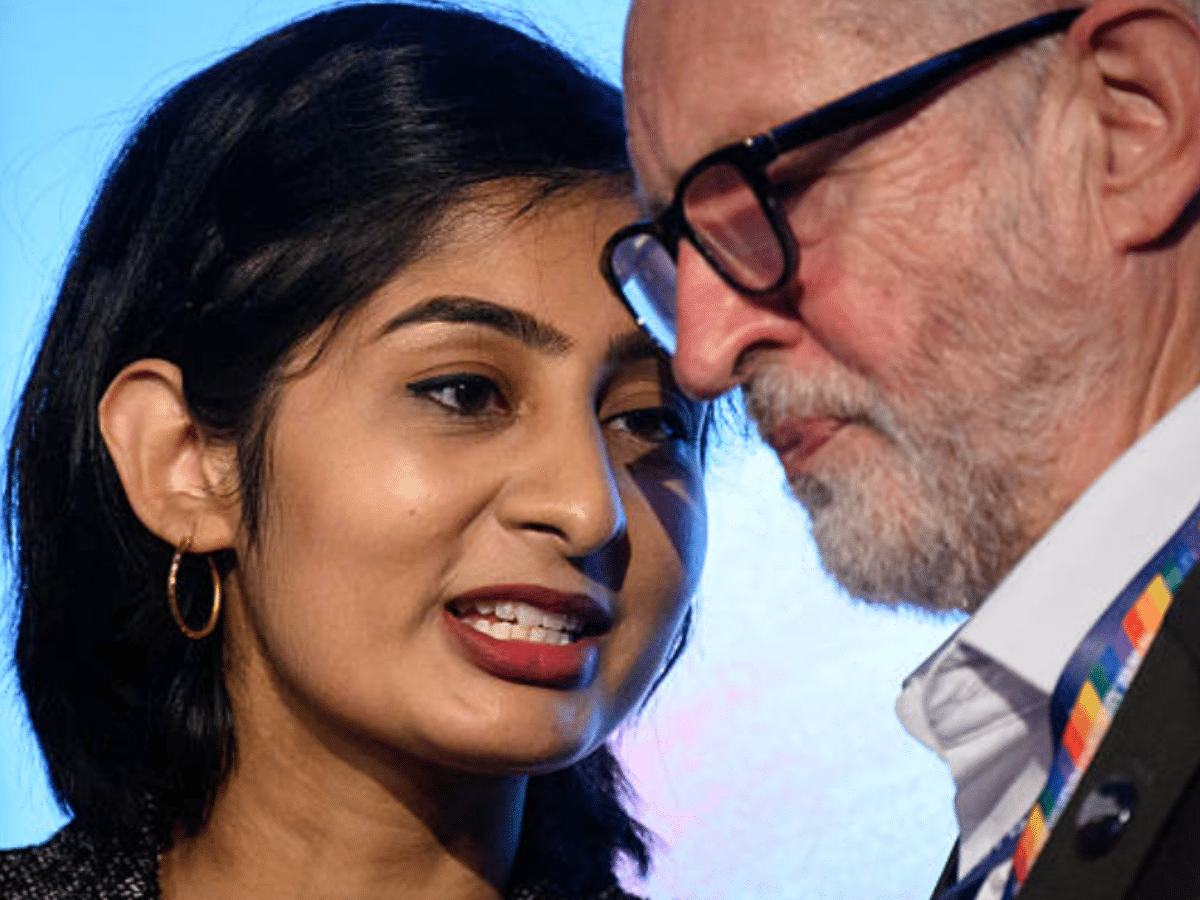
The Canary has received reports of an alleged backroom deal between Jeremy Corbyn, The Many, and Redbridge Independents. In January 2025, Corbyn announced his endorsement of the Redbridge Independents, declaring:
we are the alternative, we are the community.
However, this excited endorsement has been challenged by anonymous insiders. And, this revelation comes just as The Many accused Grassroots Left of undermining member decisions at the fledgling party’s inaugural conference.
But, the Canary have received a report from a source that was present in a meeting between Corbyn, Redbridge Independents, and candidate on The Many slate on Tuesday 26 January — one day before Corbyn declared his public support for Redbridge Independents. The source alleges that Corbyn traded his public endorsement for a commitment from Redbridge Independents to deliver votes for The Many.
If accurate, this would represent a clear attempt to exert political influence behind closed doors.
Corbyn pushes The Many
As Your Party gears up for its Central Executive Committee (CEC) elections that will determine leadership of the party, internal rifts are evident. Whilst Corbyn endorsed The Many, Zarah Sultana has endorsed the Grassroots Left slate.
An anonymous source told the Canary that Noor Begum and Tahir Mirza, two candidates on The Many slate, were present at the alleged meeting with Corbyn and Redbridge Independents. If Corbyn has indeed traded public endorsement for assurances of support for The Many, there must be serious questions over the erosion of democratic principles during the course of these elections.
Furthermore, according to our source, Begum confessed she had been told by Laura Alvarez, Corbyn’s wife, that it was imperative that both candidates be elected in the London region. If not, Corbyn and his allies would not have ultimate control of the CEC. As a result, they would not control the party itself.
These are hardly the actions of people committed to member-led democracy. Instead, they are the actions of a group of people clinging to shady Westminster-style backroom politics where what matters is who you know.
Accusations against Grassroots Left
As we mentioned earlier, these revelations come as The Many accuse Grassroots Left of undermining the principle of one member, one vote:
NEW: Some on the Grassroots Left want to overturn conference & abolish one-member-one-vote in Your Party.
The Many will defend OMOV.
Power with the members, not the sects. pic.twitter.com/uQvBb7mq3m
— The Many (@TheManyYP) February 8, 2026
For months, Corbyn and his allies have briefed against Zarah Sultana and those in her team. Namely, the allegation is that Sultana is attempting to take control of the party. As these allegations swirl, it is clear that Your Party is far from guaranteeing member-led democracy.
A party divided: democracy undermined from within
In February 2026, members of Your Party will vote nationwide to elect candidates to its Central Executive Committee (CEC), the body responsible for carrying forward the membership’s will through democratic debate and decision-making. Since the party’s inception, both sides have accused each other of attempting to seize ultimate control. Furthermore, Zarah Sultana claimed she was pushed out of the process. She denounced it as a “sexist boys club” dominated by unelected bureaucrats.
Reports suggest these struggles for control have been present from the very beginning. Corbyn’s team reportedly opposed Sultana’s involvement and resisted the proposed co-leader model. However, the announcement of that model inspired hundreds of thousands of people across the country to take notice.
Jeremy Corbyn’s Zarah Sultana’s YourParty has reached 800,000 and heads toward a million signs up’s and has 6 MP’s (Independence Alliance MP’s are party of it) and counting.
You can join the Biggest Party in UK here.https://t.co/wqcecuaaK2
— JmRoyle #LFC #YNWA #BLM #RejoinEU (@MyArrse) August 12, 2025
Members should have put this divide to rest in November, when Your Party’s inaugural conference overwhelmingly backed dual membership and collective leadership. Yet the back and forth accusations suggest that the democratic mandate from members is not being treated as such.
We have already reported how candidates aligned with Jeremy Corbyn have allegedly had to commit to overturning conference decisions regarding leadership model and dual membership. We even exposed the controversial reality that Corbyn’s aide, Karie Murphy, chose to block a sortition member once becoming aware of their socialist credentials. Nevertheless, the group appear willing to sink to ever greater depths of shadiness.
NEW: Our Proposals to Empower Members & Get Your Party Back On Track 📢
Your Party needs to harness the power of a mass movement. That means empowering members to get organised, and ensuring ALL members have say.
Here’s our plan 🧵 pic.twitter.com/38vfQAka0E
— The Many (@TheManyYP) February 8, 2026
‘Reminiscent of old-style Labour party’
Michael Lavalette, Independent councilor in Preston and candidate for a CEC public office seat, was unimpressed by reports of yet more factional scheming within Your Party. In response to the alleged backroom deals, Lavalette told the Canary:
This is a symptom of the factional fight going on inside Your Party. Groups are trying to make deals to get their slate over the line.
But we should be against backroom deals, this is so reminiscent of old-style Labour party and trade union politics that Your Party was meant to break from.
We need Your Party to be broad and inclusive. We know in many parts of the country there are independent groups and Your Party proto-branches in the same space. We need to find ways for them to work together for the benefit of YP as a whole, to work together and gradually evolve into a unified political presence on our communities. We certainly shouldn’t be looking at a ‘franchise model’ of establishing recognised groupings.
Your Party must be a big tent, a broad left of Labour party, insurgent, based in our communities, social movements and trade unions.
With a vision of establishing a better world for the millions, not the millionaires.
As Lavalette astutely points out, these toxic tactics with each camp vying for control, has meant constituencies have opposing groups organising for the same political party. Had member decisions been respected and implemented without fear or favour, this conflict would never have emerged. As a result, we can see candidates on The Many slate resorting to behaviour that can only be called dishonest and manipulative.
Top-down ‘feudal’ politics or member-led democracy
The elephant in the room is now impossible to ignore. The two slates, The Many and Grassroots Left, are drastically different in model and vision. However, the party will only endure if its leaders commit to enforcing member-led decisions. They must put personal gain and power aside.
The recent actions of Corbyn and The Many suggest they are deeply unhappy with the collective leadership model where members set the course and ‘steer the ship’. They are seemingly intent on assuming control of the CEC to row back member-led decisions to permit dual membership. Given the alleged reports of calls for Corbyn to be sole leader, it appears even the leadership model might be under threat. This is especially true if The Many assume control.
Regardless of where you sit in this debate, one principle should unite us all. Vital decisions must rest with Your Party members, made democratically, transparently, and collectively. Not MPs wielding their popularity to decide who gets a voice and who is shut out.
This new party must be about ‘how’ we show up, not which ‘team’ we show up with.
Your Party and The Many had not responded to requests for comment at the time of publication.
Featured image via the Canary
Politics
Students and staff hit out at uni arms trade partnerships

Over 1,500 UK students, academics, researchers and university staff have signed an open letter demanding UK universities cut ties to the arms trade. The letter claims the links are fuelling “global instability, injustice, and environmental harm”.
Demilitarise Education (dED), puts the value of arms-linked partnerships at approximately £2.5bn. This figure represents the combined value of partnerships held by universities in arms companies, including investments, research and academic partnerships, over the past eight years.
This data is held on the Universities and Arms Database, which dED developed and hosts.
Demilitarise Education’s arms trade campaign
dED is running a national campaign highlighting the deep and ongoing ties between UK universities and the arms trade.
The campaign has already garnered widespread support. 1,595 academics, researchers, university staff, and students have signed an open letter. It calls for an end to institutional partnerships with arms manufacturers and military-linked organisations.
Through rigorous research, advocacy and collective action, the organisation calls for transparency, ethical funding and an education system with policies committed to peace, social justice and the public good.
Dr Iain Overton, executive director at Action on Armed Violence, said:
UK universities cannot credibly claim to be solely serving the public good while taking billions from the arms trade. These are not neutral partnerships. Defence money shapes research priorities, it legitimises militarisation, and it binds centres of learning into often hidden and distant systems of violence that produce very real civilian harm.
But what this open letter shows is that such institutional consent is not uncontested. Staff and students are no longer willing to accept such complicity as the price of funding. They refuse to allow those who have profited from well-recorded civilian deaths in places like Gaza and Yemen to end up funding our Universities.
Participants not bystanders
The £2,556,647,429 figure exposes higher education institutions as active participants in military supply chains, rather than neutral bystanders. Signatories argue that these relationships implicate universities directly in systems that sustain war, militarisation and global violence. And often there’s no transparency, democratic oversight or meaningful consent from university communities.
This intervention comes amid intensifying global conflicts from the devastating genocide in Gaza and Russia’s invasion of Ukraine, to the ongoing civil war in Sudan and rising geopolitical tensions elsewhere.
These conflicts have caused widespread civilian suffering, resulting in numerous crises across the stated locations, with millions displaced, health systems collapsing and education infrastructure destroyed.
dED argues that university arms trade partnerships form part of the same global architecture that enables and sustains such violence.
BAE Systems
One of the most involved arms companies in UK universities is BAE Systems. At the University of Manchester, BAE is partnering on research to accelerate combat air systems, including research projects aimed at improving fighter jets.
BAE Systems’ weapons and technology have been linked to serious violations of international law. In 2019, the company was accused of “aiding and abetting” war crimes in Yemen.
Components manufactured by BAE for F-35 fighter jets have seen use in Israeli bombing campaigns in Gaza, resulting in thousands of deaths, including hundreds of children.
By supplying regimes engaged in indiscriminate violence, BAE has contributed directly to war crimes, mass civilian casualties, and extensive environmental destruction. Despite reporting on production emissions and business travel, BAE does not account for the catastrophic environmental damage caused by its weapons, including toxic pollution, infrastructure collapse, and long-term ecological harm.
The dED Universities and Arms Database tracks UK university links to arms companies listed in the SIPRI and Defense News top 100. So far, 90 UK universities have been identified as having direct ties. The database allows users to explore how individual universities contribute to arms company activities.
The open letter marks a clear break with institutional consent, as staff and students publicly challenge the normalisation of defence-funded research, arms-linked partnerships and military recruitment pipelines within higher education.
Arms trade ‘incompatible’ with uni aims
Campaigners argue that universities’ stated commitments to the public good, social responsibility and global justice are fundamentally incompatible with their material involvement in the arms trade. As militarism expands internationally, staff and students increasingly identify universities as a key node within the military-industrial complex.
The letter contends that research collaborations, weapons-linked funding streams and defence-aligned innovation programmes play a material role in enabling arms production and export, including into active conflict zones. They also embed militaristic logics within institutions historically understood as spaces of independent thought and public good.
Aleks Palanac from the University of Leicester says:
UK universities cannot legitimately claim to be places of sanctuary for refugee students whilst continuing to actively contribute to the causes of their forced migration in the first place through their involvement in the global arms trade.
Stop the recruitment drive
The campaign also responds to mounting pressure on universities to function as recruitment and talent pipelines for the defence sector. The UK government’s 2025 Strategic Defence Review outlines plans to align higher education with military and defence industries more closely. This includes the creation of a Defence Universities Alliance and targeted investment in STEM disciplines to support military technologies and defence roles.
dED criticises the government’s proposed “whole of society” approach to defence. This includes increased exposure to military careers among school-aged children and initiatives such as paid armed forces “gap years” for under-25s. The organisation says this risks normalising military service as a default life trajectory for young people. And particularly so in the context of widening inequality and shrinking civilian opportunities.
Jinsella Kennaway, the co-founder and executive director of dED, says:
Over 1,500 members of the UK knowledge community have put their names to this open letter. This is no fringe view – it is a clear mandate from within our universities. This is a stand against the use of education to fund, legitimise and supply the war machine.
Universities must honour their duty to serve the public good by choosing partnerships that build the conditions for peace, not profit from conflict. No ethical integrity can be claimed while arms industry partnerships amplify the lethality of war and stakeholder calls for change are met with silence.
The letter calls on universities to realign their policies and practices with the dED Treaty framework. It demands full transparency over defence-linked funding, research and partnerships, alongside formal commitments to exclude arms companies from university collaborations.
It further calls for an end to recruitment ties with the armed forces and arms manufacturers. And it looks for a renewed commitment to research and teaching that prioritises peace-building over warfare.
Campaigners argue that universities must remain spaces of critical inquiry and humanistic values, not extensions of the military-industrial complex.
Featured image via the Canary
Politics
The Easter Eggs From Bad Bunny’s Super Bowl Performance, Explained

Bad Bunny’s Super Bowl halftime performance was chock-full of Easter eggs for his dedicated and newest fans alike.
Here are the ones we caught…
The Child Who Got A Grammy
After many people became attached to the idea that the young boy to whom Bad Bunny handed his Grammy was Liam Conejo Ramos, the five-year-old who was detained by ICE in January in Minnesota, fans quickly figured out that the boy was actually child actor Lincoln Fox, dressed as a young Bad Bunny.
In the scene, Bad Bunny hands his Grammy to his younger self in a symbolic gesture. Earlier in the performance, Bad Bunny looked into the camera and said that he was at the Super Bowl because he never stopped believing in himself.

Kevin Mazur via Getty Images
The Bride And Groom
A couple was quickly married on stage during the Super Bowl, right before Lady Gaga made a surprise appearance to perform a salsa-inspired version of her song Die With A Smile.
The bride and groom have not yet been identified, but according to The Hollywood Reporter, they had originally invited Bad Bunny to attend their wedding. When he couldn’t make it, he reportedly invited them to get married during his Super Bowl performance.
Near the beginning of Bad Bunny’s performance, the couple got engaged, then later married, then sliced a wedding cake together.

Todd Rosenberg via Getty Images
The ‘64’ On His Jersey
Bad Bunny’s reps didn’t immediately respond to a question on what the “64” on his jersey represented, but fans have some theories.
It could be the original reported number of Puerto Ricans who died in Hurricane Maria, the storm that devastated the island in 2017. Or maybe it’s a nod to the 64th Congress, which passed the Jones–Shafroth Act, granting U.S. citizenship to people born in Puerto Rico.
Others have speculated that it’s simply the year of his mum’s birth.
A Puerto Rican Social Club
At one point, Bad Bunny takes a quick shot on stage. The woman who handed it to him was none other than María Antonia Cay, also known as Toñita, who owns the Caribbean Social Club in Brooklyn, a gathering place for the Latino community in the now-gentrified Williamsburg neighbourhood.
In 2022, Bad Bunny celebrated the release of his album Un Verano Sin Ti at the club, and there’s even a festival in Toñita’s honour every year.

Kevin Sabitus via Getty Images
The Power Lines
After Ricky Martin’s surprise performance during the halftime show, the camera panned to power lines sparking and then going out, likely a nod to Puerto Rico’s many blackouts (“apagón” means “blackout” in Spanish).
Since Hurricane Maria devastated Puerto Rico in 2017, millions of Puerto Ricans have experienced intermittent power outages, which are a recurring problem even in the absence of hurricanes.

Stan Grossfeld/The Boston Globe via Getty Images
The Light Blue Puerto Rican Flag
As Bad Bunny was singing his song El Apagón, he waved a Puerto Rican flag featuring a light blue triangle. This flag typically represents Puerto Rican independence.
In his music video for LA MuDANZA, Bad Bunny ran from police carrying the light blue flag.

Kevin Mazur via Getty Images
Celebrity Cameos
Multiple celebrities were seen dancing along to Bad Bunny’s performance, including actors Jessica Alba and Pedro Pascal, singers Karol G, Cardi B and Young Miko, entrepreneur David Grutman, social media personality Alix Earle and more.

Carlos Avila Gonzalez/San Francisco Chronicle via Getty Images
The Jumbotron Message
Toward the end of Bad Bunny’s halftime performance, a simple and bold message —“The only thing more powerful than hate is love” — was displayed on Levi’s Stadium’s jumbotron. The message seems to respond to right-wing outrage over Bad Bunny’s selection as the halftime headliner, in part because he sings primarily in Spanish.
After the performance, Donald Trump fumed on Truth Social that “nobody understands a word this guy is saying”, among a litany of other complaints.
A Beloved Taco Truck
The Caribbean Social Club wasn’t the only small business Bad Bunny featured in his halftime performance. Los Angeles’ beloved Villa’s Tacos was also highlighted when Bad Bunny took a shaved ice from one stand and handed it over to Victor Villa, the taco shop’s owner and chef, who was standing behind his taco stand.
Villa thanked Bad Bunny on Instagram for giving him an opportunity to “represent my people, my culture, my family and my business”.
Politics
Chappell Roan Leaves Agency Over CEO’s Emails With Ghislaine Maxwell
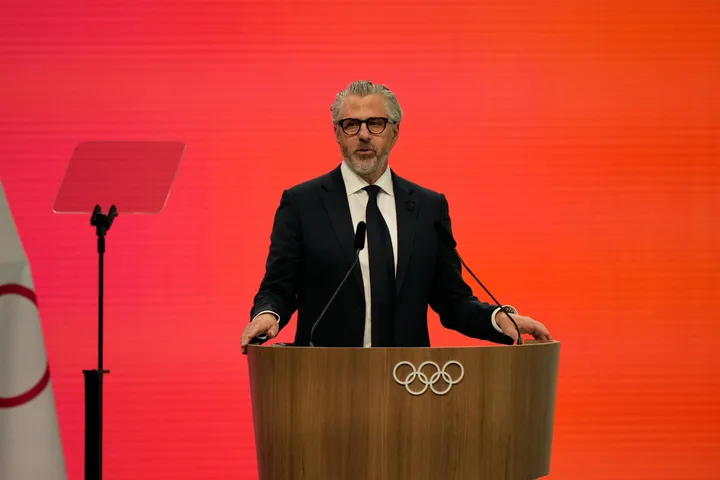
Chappell Roan has announced that she is parting ways with her long-term talent agencies after emails between its CEO and convicted sex trafficker Ghislaine Maxwell were unearthed.
Towards the end of last month, Wasserman Media Group founder Casey Wasserman – who is also the chairman of the organising committee for the upcoming Olympics – issued an apology after flirtatious emails between himself and Maxwell from 2003 were made public.
In the early hours of Monday morning, the Grammy winner shared a brief statement on Instagram explaining that she no longer felt comfortable being represented by Wasserman.
The Pink Pony Club singer told her Instagram followers: “As of today, I am no longer represented by Wasserman, the talent agency led by Casey Wasserman.
“I hold my teams to the highest standards and have a duty to protect them as well. No artist, agent or employee should ever be expected to defend or overlook actions that conflict so deeply with our own moral values.”
Chappell continued: “I have deep respect and appreciation for the agents and staff who work tirelessly for their artists and I refuse to passively stand by.
“Artists deserve representation that aligns with their values and supports their safety and dignity. This decision reflects my belief that meaningful change in our industry requires accountability and leadership that earns trust.”

HuffPost UK has contacted the Wasserman Media Group for comment.
In his previous statement, Wasserman said that he “deeply” regrets his past correspondence with Ghislaine Maxwell, which he insisted took place “long before her horrific crimes came to light”.
He added: “I never had a personal or business relationship with Jeffrey Epstein. As is well documented, I went on a humanitarian trip as part of a delegation with the Clinton Foundation in 2002 on the Epstein plane.
“I am terribly sorry for having any association with either of them.”
Politics
The House Article | Countdown: Can Labour Meet Its 2030 Clean Power Mission?
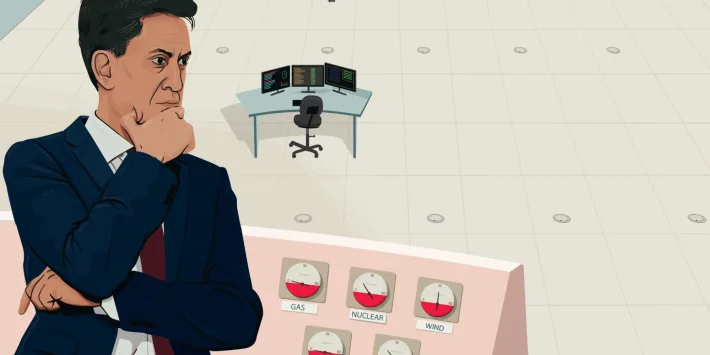
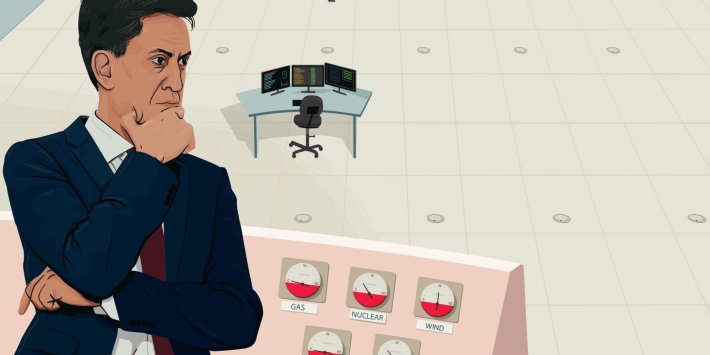
Illustration by Tracy Worrall
11 min read
The success of the latest wind power auction has put Ed Miliband within sight of realising the goal of decarbonising the UK’s electricity network by 2030. But, as Adam Bell reports, daunting obstacles remain – and any success may be bittersweet
It is almost midnight on 31 December 2029, deep in the bowels of Whitehall. A room where monitors bedeck every surface is filled with officials scurrying to and fro. A bespectacled man is on the phone, pinching the brow of his nose in frustration.
“…I know, I know, I know. Inertia. Just please turn it off for the next half hour, and spin up a battery instead.”
He puts down the phone with a heavy sigh. “TEN SECONDS TO MIDNIGHT,” yells one of his staff.
All eyes turn to the screen, where a bar labelled “GAS” is starting to shrink.
“FIVE.” The bar is now halfway down.
“FOUR.”
“THREE.”
“TWO.”
“ONE.”
The bar falls to zero. The room erupts. The lights stay on.
The government is building an enormous machine. It could already raise the temperature of the North Sea, albeit by a single degree and in 200 years. But by 2030, it hopes to have upgraded the machine to such an extent that it would take a mere 150 years.
This machine is the electricity system, and it touches every part of our isles. It is, by a substantial margin, our most complex device. It is in every home, every office and every factory, and it connects them together through a web of cabling that is now well over a century old. While the individual wires may have been replaced, the circuit endures.
The original point of building such a vast machine was to manage the reality that our demand for electricity is not a flat line but varies continuously throughout the day. But the more people connected to a circuit, the more their varied times of switching on the kettle even out. This allows fossil fuel generators to run much more efficiently. Constantly switching them on and off takes more fuel, and instead being able to gently ramp them up and down over the course of the day made electricity considerably cheaper.
Labour won the last election in part through a promise to cut bills by £300 by weaning the country off gas. Its plan for doing so is to decarbonise power by 2030 and thus ensure that the energy crisis, prompted by Russia’s invasion of Ukraine, can never happen again. The public face of this plan is Ed Miliband, and his political future is tightly tied to its success. As part of this, he has given considerable new powers to the National Energy System Operator, the body responsible for both balancing the minute-to-minute operation of the grid and now planning its upgrade.
This is not an easy task. Power plants that run on sunbeams do not have the same performance characteristics as plants that run on gas. You can’t switch the Sun on and off, and indeed in the UK the weather will frequently switch the Sun on and off for you. This means that renewable power plants can’t respond to demand. So, to replace gas, you must not simply build solar panels and wind turbines but all the infrastructure necessary to ensure that demand can be satisfied. And then you must ensure that you can actually make that infrastructure run smoothly.
Nuclear power helps out in part but suffers from almost the opposite problem to renewables: it is very hard to switch off. You can change its output at the margins, but demanding that it have the same performance characteristics as a gas plant will lead to a nuclear engineer saying terrifying things like, “Well, I suppose we could poison the reactor with xenon.”
Nonetheless, having a nuclear backbone helps. In 2025, always-on demand equated to about 13m kettles all boiling at once. Most of the UK’s nuclear reactors are older gas-cooled designs. The last of these came online in 1988. They are now ageing and will need to come offline for decommissioning.
By 2030, it is likely that only one of those reactors will remain online, alongside the 1990s vintage reactor at Sizewell in Suffolk. The only nuclear power plant currently being constructed in the UK, at Hinkley in Somerset, consists of two very large reactors, one of which has the potential to be online by 2030. Without this last reactor, the 2030 target will be in trouble, and considerable effort is going into making sure it happens.
However, while nuclear can take care of our 13m kettles, at maximum the UK consumes power equivalent to 60m kettles. This means there is a very large volume of variable demand to solve. As above, we can’t do this with wind and solar alone. We need ways to store their power and ensure it can get to where it needs to go. But even with that, we’ll still need a lot more wind and solar. The government’s task here is to make that happen.
To put this into perspective, we currently have 16GW of offshore wind around our coasts. You don’t need to know what a gigawatt is to know that adding at least 28 more is a lot. Luckily there’s enough already in process to mean that the government is likely to only need to buy 16-20 extra gigawatts. In its most recent round of renewables purchases it was able to buy 8.4 of this total, putting it within striking distance of hitting its target.
But the problem government now faces is that the price it paid for offshore wind in this round was higher than it has paid for other recent rounds, and developers now know that it’s willing to pay over the odds to hit its target. This implies that if it wants to buy the same amount in the next round it might be charged even more. At the same time, the US’ current antipathy towards wind projects in its own waters will prompt developers to pivot away towards Europe and Asia, potentially improving competition.
The same challenge applies to onshore wind and solar. Onshore wind needs to double, and solar needs to triple. In February we will find out how much government has paid to bring more of these projects online. But the big problem these projects face is much less getting paid and much more about getting connected.
Where pylons stride across landscape, local opponents could cause delay, whether by judicial reviews or planning inquiries
The wires that run the length of the country, the high voltage highways of the power system, were built when most of our power stations were located in the middle of the country and the task was to get the power from the middle to the edge. But the windiest parts of the UK are in Scotland, and the sunniest parts are in Cornwall, which means we now need to rewire the country to bring power from the edges into the middle. Given that our existing grid was slowly built out over the course of about a century, rewiring everything everywhere all at once is a colossal challenge by itself.
It will involve building about 1,000 kilometres of wire onshore and about 4,500 kilometres of wire offshore. The onshore cables will carried by pylons, aside from a small number of locations where they will be buried in the ground to protect nationally significant landscapes. The offshore cables will take the form of enormous wires stretching through the North Sea from Scotland to the Midlands, ensuring that wind can get out of Scotland efficiently, as well as new offshore connections around East Anglia.
Whether onshore or offshore, these projects will face opposition. Where pylons stride across landscape, local opponents could cause delay, whether by judicial reviews or planning inquiries. Offshore cables are not immune because bringing high-voltage direct current connections onshore means very large converter stations. To the uninitiated, these resemble large coastal warehouses – and those who live near them have already started to organise.
Without sufficient connectivity, adding more wind farms will not actually reduce emissions: even if England buys their power, if the power can’t physically get to England, gas power stations will need to be switched on to meet demand.
But because if you’ve sold your power you still get paid regardless of whether it can get to your customer or not, lots of applications for wind, solar and battery projects have been put in across the country. Not all of those can efficiently connect to the grid. Historically, new grid connections have been managed on the basis of first-come first-serve, but in a context in which literally hundreds of gigawatts’ worth of projects had applied for a connection, something new was required.
The System Operator has, therefore, decided to stop allocating connections based on who happened to have bought an option on farmland in Yorkshire and applied on the never-never six years ago, and instead moved to a much more centrally directed regime. Quite simply, it’s looked at all the regions of the UK, looked at how much connectivity it has to play with, and said, “Alright, we need more solar here, some batteries there, and a few wind turbines over here.” It’s then allocated grid connections on this basis and stripped out all those applications from people who hadn’t even bothered to get planning permission.
Batteries and solar – and projects with solar and batteries on the same site – have been the big winners from this process, even if a lot of more speculative applications for these technologies have fallen by the wayside. Lithium-ion batteries, typically made in China but controlled by British-designed software, are expected to come into their own for the purposes of 2030. They will be increasing fivefold from their current capacity of 5GW to closer to 25GW. This moves them from an interesting technology project into the daily mainstay of the grid, storing the midday sun and pumping it out at teatime.
But this new approach to grid connections relies on the wires that provide that connectivity actually being built on time, and here the picture is not quite as positive. The Norwich to Tilbury line, essential for conveying as much offshore wind to the South East as possible, has been delayed to 2031. Without it, the volume of low carbon power that can reach demand will be lower.
Delays are a function of both engineering challenges and financial engineering challenges. In building all of this new grid infrastructure, the transmission companies can only spend up to the amount that Ofgem has allowed them to, before it starts cutting into their bottom line. Ofgem has not allowed the network companies to spend everything they might need for 2030 yet. They have taken the not-unreasonable view that all the generation needed might not materialise, and if it doesn’t materialise then the wires aren’t needed. The spending is therefore locked up inside Uncertainty Mechanisms, a term of regulatory art that doesn’t refer to a mechanical magic 8-ball but rather to a set of conditions under which the money will be unlocked. Which includes progress on delivering all the renewables projects laid out above.
The government’s problems don’t end there. While gas will only provide about five per cent of the electricity needed to run the system, actual gas plants will need to run 20-30 per cent of the time. But much like the nuclear fleet, our gas fleet is ageing and it’s not clear whether many of the existing plants will stagger over the finish line.
The government currently plans to carve out a special market for new build and refurbished gas plant – but, much like with offshore wind, the market knows that these plants are needed and will extract as much value as it can.
These are strong headwinds, but there is an unexpected chink of light. The government may be on course to achieve its 2030 target, albeit not in the way it expected. Many of the large numbers set out above presume significant increases in demand. If demand doesn’t increase dramatically – driven by heat pumps, electric cars and data centres – then a smaller generation build-out might be sufficient to decarbonise the power system. Given that demand for electricity has been declining for the last 20 years, this would be in keeping with the existing trend.
This may be excellent for the target, but this chink of light would in fact be the lights of an oncoming train of failure for the government’s other objectives. Progress on decarbonising heat and transport – not to mention progress on rolling out the data centres necessary for AI – will have gone seriously off-track.
The government’s Warm Homes Plan calls for 200,000 fewer heat pumps than the Climate Change Committee’s target. The Treasury has decided to levy a similar tax on electric vehicles that, when imposed in New Zealand, saw deployment fall by half. The newspapers are full of claims that AI is a bubble.
The triumphant crossing of the finishing line at the end of the decade may yet be realised – but the way we got there may mean it doesn’t feel that great.
Politics
Newslinks for Tuesday the 10th February 2026

Starmer fends off coup his aides accuse Streeting of being behind, as Badenoch insists his position is still untenable
“Sir Keir Starmer on Monday insisted he was “not prepared to walk away” after he survived the most serious challenge yet to his leadership, even as fresh tensions emerged between the embattled UK prime minister and one of his leading rivals. Starmer’s authority was badly damaged after Anas Sarwar, Labour’s leader in Scotland, called on him to resign less than two years after winning power, saying there had been “too many mistakes”. The prime minister’s allies claimed that Sarwar’s move was co-ordinated with health secretary Wes Streeting, who is seen as a contender for the Labour leadership if and when Starmer leaves office. “You don’t have to be a rocket scientist to wonder whether Wes knew about and encouraged him to make a move,” said one MP close to Starmer. Streeting’s team hit back, criticising Starmer’s Downing Street operation for trying to implicate the health secretary even after he had voiced some support for the prime minister. “We did not ask Anas to do this, he did not co-ordinate with Anas on this, Anas is the leader of the Scottish Labour Party, he is his own man, and Wes has the highest respect for him,” said a spokesperson for Streeting.” – FT
- ‘Too many mistakes’ Scottish Labour leader tells Starmer to quit now and blasts ‘it’s not good enough’ – as PM desperately clings on to career – The Sun
- Cabinet bounced into giving PM ‘a stay of execution’: Ministers back Starmer after 24 hours of silence as markets wobble in wake of Scottish Labour chief telling Sir Keir ‘go now’… amid war with Wes – Daily Mail
- Starmer still standing after the coup that never was – The Times
- Cabinet forced to back Starmer to save his skin – Daily Telegraph
- ‘This is my fight’ Starmer vows to fight on & beat rebels in Labour showdown as he pleads with MPs to battle Reform after Mandelson scandal – The Sun
- Keir Starmer tells MPs: I’ve won every fight I’ve been in — as it happened – The Times
- Keir Starmer says he is ‘not prepared to walk away’ after call for resignation – Guardian
- Starmer stumbles on as rivals balk at killer blow – FT
Editorial
- While Sir Keir clings on to his leadership, next to nothing is being done to fix UK’s broken borders or flailing economy – The Sun
Comment
- Starmer should go for the good of the country – Kemi Badenoch, Daily Telegraph
- Blimey, what a Monday! But the nasal knight will live to honk another day – Quentin Letts, Daily Mail
- Neither good nor serious – Ben Sixsmith, The Critic
- Labour’s toxic cult of masculinity has been Starmer’s undoing – Suzanne Moore, Daily Telegraph
- McSweeney’s exit sounds Starmer’s death knell – William Atkinson, CapX
Today
Wes Streeting blamed by Starmer loyalists for ‘coup’ attempt that failed
“A fresh row broke out between Wes Streeting and Downing Street on Monday night after the Health Secretary accused No 10 of briefing against him while he was out defending the Prime Minister. Downing Street accused Streeting of co-ordinating with Scottish Labour leader Anas Sarwar to call for Keir Starmer to quit over the Peter Mandelson scandal, the Health Secretary’s spokesman said. The hostile briefing against him took place while Streeting was doing an interview with Sky News in which he expressed support for the PM, they added. Despite that support, the Health Secretary seemed to be clearing the path for a potential leadership bid as he published his private WhatsApp messages with Peter Mandelson. As dark clouds gathered around the PM last week, Streeting’s name was once again thrown into the mix to replace him, leading to a vicious briefing war with other rivals, who made much of his friendship with the disgraced peer.” – Daily Mail
- Streeting accused of No 10 coup – Daily Telegraph
- I’m not prepared to walk away’: Starmer tells Labour MPs in showdown meeting as he fights for his future – but his woes deepen as Streeting reveals how he moaned about PM’s ‘no growth strategy’ in Mandelson WhatsApps – Daily Mail
- Starmer just one Cabinet resignation from being forced out, insiders say – The i
- Streeting told Mandelson Labour had no growth strategy in private texts – Daily Telegraph
- Wes Streeting’s Mandelson texts: ‘No growth strategy at No 10’ – The Times
- Streeting accused of coup against Starmer as plot to oust him exposed – Express
- Streeting wrote off his re-election chances in WhatsApp exchanges with Mandelson – Guardian
- Keir Starmer to force out cabinet secretary over Mandelson vetting – The Times
Comment
- Wes Streeting is disloyal, untrustworthy – and right on many things – Stephen Pollard, Daily Telegraph
- The Cabinet’s belated – and frankly unconvincing – show of loyalty has brought Starmer a stay of execution only. All it would take is a puff of wind to blow him over now – Jason Groves, Daily Mail
- What could a Starmer government possibly achieve now? – Isabel Hardman, Spectator
- Cabinet delighted to save Sir Keir… now they own him – Tim Stanley, Daily Telegraph
Angela Rayner for leader website went live briefly last month…
“An unfinished website claiming to launch Angela Rayner’s Labour leadership campaign was published temporarily in January, prompting further speculation that the former deputy prime minister could be gearing up for a contest to replace Keir Starmer. The Guardian was alerted to the website, which appeared to be under construction, by a source in the IT industry – before the US Department of Justice’s latest release of documents on Jeffrey Epstein threw the UK government into disarray. It was published, seemingly by accident, on a “staging site”, before being removed from the internet. The domain name angelaforleader.co.uk was registered within minutes of the apparent publishing error, at 9.48am on 27 January, with the same company – Webfusion – as her official parliamentary site. Rayner has denied any links to the website, with her team dismissing it as a “fake” that had neither been commissioned by her, nor with her knowledge, while one ally described it as a “false flag” operation.” – Guardian
- Angela Rayner ‘leadership website’ revealed as she claims it’s ‘nothing to do with her’ and steps back from killing off Starmer – after Scots Labour leader said he must go on day of drama – Daily Mail
- Rayner for leader’ site proves race to succeed Starmer is well under way – Guardian
Comment
- Why Angela Rayner would be the most abysmal PM of my lifetime – Stephen Glover, Daily Mail
Yesterday
Jimmy Lai sentenced to 20 years in jail by China just days after PM asked for his release
“Jimmy Lai will die in prison, his daughter warned, after the Hong Kong newspaper owner was sentenced on Monday to 20 years in prison under the territory’s national security law. Despite Sir Keir Starmer’s personal lobbying of President Xi of China in Beijing last month, Lai, 78, received the longest sentence given so far under the law after being convicted in December of sedition and collusion with foreign powers. Eight other defendants, including journalists at Lai’s former Apple Daily newspaper, were sentenced to terms ranging from six years and three months to ten years, at the end of a trial that has been condemned by western governments and human rights organisations.” – The Times
- Keir Starmer accused of ‘monumental diplomatic failure’ as China jails British citizen Jimmy Lai for 20 years just weeks after Prime Minister raised his plight during talks in Beijing – Daily Mail
- Jimmy Lai: will Hong Kong media tycoon die in jail? – Guardian
Today
Palace will cooperate with police over Andrew’s connections to Epstein
“Buckingham Palace has said it will support police in their investigation into Andrew Mountbatten-Windsor and his links with the late paedophile financier Jeffrey Epstein. The King emphasised his “profound concern” about his brother’s alleged conduct and said the Palace would provide help to police if it was requested. Thames Valley Police has expanded its inquiry into Andrew, who was already under investigation over allegations that he was introduced to a second victim of Epstein — someone other than Virginia Giuffre — at Royal Lodge in 2010. Andrew denies wrongdoing. The force confirmed that it would also assess allegations that Andrew leaked confidential information as a trade envoy.” – The Times
- King Charles says he will help UK police investigate brother’s links to Jeffrey Epstein – FT
- King Charles expresses his ‘profound concern’ at allegations of Andrew’s conduct after Epstein file release, as Buckingham Palace says it ‘stands ready to support’ the police – Daily Mail
- King Charles ‘ready to support’ police over claims about Andrew – Guardian
- King Charles’s U-turn in response to Andrew scandal proves one important thing – Express
- King ‘stands ready’ to support police probe into Andrew amid claims ‘he leaked confidential docs to paedo pal Epstein’ – The Sun
Reform-led Worcestershire set to issue England’s largest council tax rise
“Reform-led Worcestershire county council is likely to issue England’s largest council tax rise this April after it was given special permission by the government to increase it by up to 9%. Worcestershire is one of a handful of authorities whose requests to be allowed to increase local rates above the standard 5% cap from April have been accepted by ministers. Its cap-busting tax hike will be embarrassing to Reform UK nationally, which has made low council tax a political priority; while it has already led to one local Reform councillor quitting the party in protest. Ministers have also announced the government will clear about £5bn of historical debts accumulated by English councils who have overspent on special educational needs and disability (Send) services in recent years.” – Guardian
- Eric Pickles: ‘Cancelling local elections is unconstitutional’ – Daily Telegraph
Yesterday
For successful economic reform, the sums need to add up and Reform’s economics don’t – Mel Stride
News in Brief
- Our armed forces are hollow – and our enemies know it – Nick Carter, Spectator
- Who has the courage to fix Britain’s debt crisis? – Anne Strickland, CapX
- The conservative case for Keir Starmer – Mary Harrington, Unherd
- Call for the King – Nicholas Boys Smith, The Critic
Politics
Wes Streeting Accuses Israel Of War Crimes In Gaza
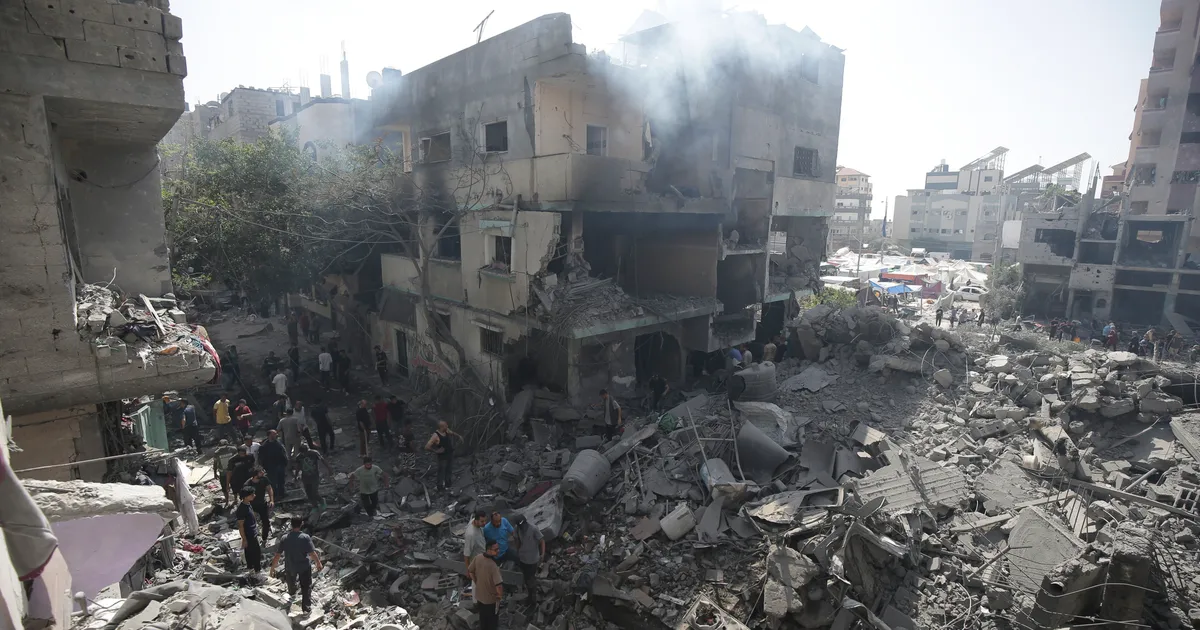
Wes Streeting told Peter Mandelson that Israel was “committing war crimes before our eyes” in Gaza, private WhatsApp messages have revealed.
The health secretary’s views put him at odds with the government’s official position on the conflict.
Streeting released all of his WhatsApps to Mandelson, who faces a criminal investigation into allegations he leaked sensitive government information to convicted paedophile Jeffrey Epstein when he was business secretary.
In one sent in July last year, he said: “Israel is committing war crimes before our eyes. Their government talks the language of ethnic cleansing and I have met with our own medics out there who describe the most chilling and distressing scenes of calculated brutality against women and children.”
He said Labour “need to be leading the charge on this”.
″The alternative is being dragged there with enormous damage to Keir, the govt and the party,” he said.
In a later message, Streeting accused Israel of “rogue state behaviour”.
“Let them pay the price as pariahs with sanctions applied to the state, not just a few ministers,” he said.
Speaking to Sky News’s Electoral Dysfunction podcast, the health secretary said: “I have made [Foreign Secretary] Yvette Cooper aware of what I’ve said about Palestine, Gaza, and the conduct of the Israeli government, and I hope that doesn’t cause colleagues difficulty because I have always been a team player.”
In another message to Mandelson, Streeting said the government “has no growth strategy at all” for the economy.
The Ilford North MP – who only retained his in 2024 with a majority of 528 – also told the disgraced peer he was “toast at the next election”.
Although the pair sign off some of their messages with kisses, Streeting insisted he was “not a close friend of Peter Mandelson”.
Politics
Luke Thompson Explains Why Benedict Doesn’t Recognise Sophie In Bridgerton Season 4
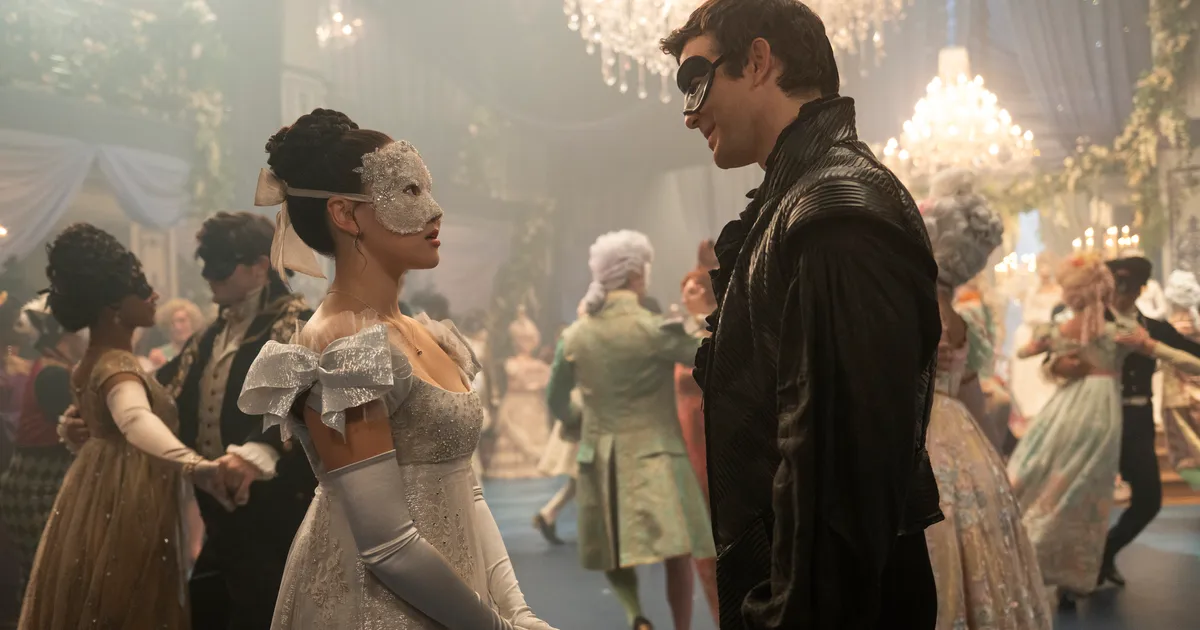
With the fourth season of Bridgerton still riding high, fans are again under its spell – but that’s not to say that the new episodes haven’t also left them with one rather puzzling question.
The latest episodes of the hit Netflix period drama focus on Benedict Bridgerton’s budding romance with Sophie Baek, who he doesn’t realise is also the mysterious “Lady In Silver” with whom he became infatuated after meeting at his family’s masquerade ball.
But this Cinderella story has left many viewers pondering how Benedict doesn’t recognise that Sophie is the “Woman In Silver”, and that’s exactly what Alison Hammond put to Luke Thompson when interviewing him for the show’s companion podcast.
“Why did he not recognise her, come on?” the This Morning host asked. “It’s all in the mouth! You were dreaming about the mouth the whole time!”
Luke responded: “On a metaphorical level, I do think everyone is blind up to a point. Everyone has huge blind spots.
“We all have that friend, or friends, or even ourselves, that we look at, and there’s a part of us that we just don’t see and we don’t understand, and that can last for years.”
His on-screen mum Ruth Gemmell had a more straightforward answer, though, remarking: “In the Ton, they’re all a bit dim.”
Elsewhere in the interview, Luke also shared his take on the cliffhanger ending that saw Benedict asking Sophie – played by Bridgerton newcomer Yerin Ha – to be his “mistress”.
While Alison conceded this was something of a “dick move”, she also defended Benedict, suggesting that this was the only way he could envisage a long-term future with Sophie due to their class differences.
Luke agreed: “It’s his idea, I think, of a really good offer.
“And it’s also sort of striking because we’ve seen this very soft, relaxed, easy side of Benedict. And actually, at his centre, he is very anxious about love. The fact that he’s like, ‘OK, well you can be my mistress’, and then I’ll be in society.
“I always say [he feels like] a ‘traditional man’ turned inside out – all the soft stuff is outside, and the actually more controlled side is very well hidden.”
He added: “What I will say, in his defence, is that Sophie hasn’t told him she’s the Lady In Silver. She’s holding back as well.”
Bridgerton showrunner Jess Brownell recently shared a similar take on the backlash to Benedict’s “mistress” offer among fans.
Meanwhile, Bridgerton will return for four more episodes on Thursday February 26, with at least two more seasons also in the pipeline.
Politics
Politics Home | A unique industrial chemical partnership is addressing real-world challenges


Credit: Fergus Burnett
With the necessary investment, BASF and Imperial College London say their innovations have the potential to create new economic opportunities in the UK
The chemical industry plays a vital role in all our lives. Chemicals and their derivatives are used in more than 90 per cent of manufactured products and materials – everything from construction and automotive products to everyday items like cleaning products and medical devices.
But with the advent of AI and new technologies, innovation is crucial to support the success of the industry.
With that in mind, world-leading chemical company BASF and Imperial College London are working in partnership to share their expertise and develop innovative solutions to real-world challenges. These include meeting sustainability commitments by developing sustainable products and technologies, improving resilience to supply chain shocks caused by geo-political events, and potentially being ready to manufacture pandemic pharmaceuticals at speed.
Our partnership with BASF is unusually close, interactive and genuine
Since 2019, the partners have been pioneering ways to produce chemicals with less energy and fewer materials, implement continuous production techniques at smaller scales, and use AI to optimise manufacturing, thereby ensuring that the industry continues to be as competitive as possible. Innovations like these could improve the performance of BASF’s production sites and support economic growth across the UK.
Working together, the partners are creating advanced technology and know-how to support the green transformation of the chemical industry by accelerating a shift to non-fossil feedstocks and less energy-intensive methods.
At the same time, they are nurturing a new generation of industrial chemists able to boost the industry’s success, resilience and sustainability.
“We are always looking to work with the best and brightest students and the top people in their fields,” says Darren Budd, Managing Director of BASF plc.
“We have around 10,000 researchers globally, and 40 or 50 years ago maybe we could do it all in-house. But research requires a multi-disciplinary approach today and we can’t do everything ourselves. We need to find the best partners – partners who fit with our ethos, allow us to progress our research and bring products to market much faster.
“Imperial has like-minded individuals with whom we can work, collaborate and share best practice. Working with them allows us to pick up new techniques and new ideas to support the way in which the world is changing, whether that’s the labs of the future in terms of digitalisation or getting the best students and training them in new techniques and new technologies.”
“Our partnership with BASF is unusually close, interactive and genuine,” agrees Dr Philip Miller, Associate Professor in Applied Synthesis at Imperial’s Department of Chemistry.
“Having a steer and direction from industry as to what some of the challenges are is really important to us. We get to work hand-in-hand with an industrial partner, so from the ground up we co-create projects together. It means that we can take the fundamental research that we do in our labs and apply it to real-world problems.
“Having early-stage input from industrial chemists, engineers or other scientists within companies is important. When you have support from industries like BASF, it puts the rocket boosters on what you can do over the short and medium term – and hopefully sustain that investment, research and translation into the longer term.”
Advancing the chemical industry, a report on the Imperial-BASF partnership published last autumn (2025), showed how the partners are translating their research findings into technologies that are ready for adoption and roll-out. Turning a lab-scale reaction into a commercial manufacturing process can take anything up to 12 years, but the partners believe that their respective expertise can help bring projects to market more quickly.
To date, the partnership has supported 35 PhD students, many of whom are working on improving the economic and environmental performance of the chemical industry – for instance, by improving the yield and selectivity of chemical reactions and by using digital techniques to reduce the time-to-market for new continuous manufacturing processes. Their research has led to numerous papers in leading academic journals, patents and new technologies.
As the partnership evolves, the partners are increasing their focus on bringing new techniques and technologies to industrial adoption.
Routes include their direct transfer to BASF, joint development with consortium partners, and the launch of start-up companies to commercialise their joint research. The formation of SOLVE Chemistry, for instance, is the first time BASF has jointly launched a spin-out with a university. SOLVE Chemistry is now working independently to provide the whole industry with access to its AI-based solutions to find the best way to manufacture chemicals more rapidly.
BASF and Imperial believe that their partnership is a model for the way industry and academia can work together and benefit from each other.
“The pragmatic, impact-driven mindset is what you find at Imperial,” says Dr Christian Holtze, Open Innovation Manager at BASF and BASF’s lead in the partnership. “Imperial is very advanced in how they’re deploying digital science into every aspect of research. They are very strong in areas such as scientific modelling and optimisation – and the way the students are educated is always integrating a digital component. This is fairly unique when compared to research and education at other universities.”
-060.jpg)
Meanwhile, Professor Mary Ryan, Vice-Provost (Research and Enterprise) at Imperial, sees the partnership as one of the university’s most significant strategic partnerships. “Using Imperial’s advanced expertise in chemicals and digital technologies, the technical advances we now have in the pipeline with BASF are both highly realistic and deliverable and potentially transformational, opening up opportunities for dramatic increases in efficiency and even new value chains,” she says.
Today’s chemists are a world away from the days when they worked at benches cluttered with beakers, burners and rising smoke; they now work in highly controlled environments that blend AI, advanced instrumentation to generate high-quality data and data-driven design.
“If you have sufficient data, you can feed that into a machine learning algorithm that enables decisions to be taken out of humans’ hands and direct the temperature, pressure or flow rate to maximise yield or minimise factors such as cost,” says Imperial’s Dr Miller.
Some of the partnership’s other projects include the introduction of flow chemistry, a form of chemical production that allows the fine control of parameters such as temperature, flow rate and real-time monitoring via sensors. Imperial and BASF are also combining new computational approaches with experimental data to improve crystalline products and make production processes more scalable. A third project is looking at a new technique that uses light instead of heat to set off the chemical reactions needed to produce products such as crop protection chemicals.
BASF and Imperial are confident that with the necessary investment, the innovations under development have the potential to create new economic opportunities in the UK, including new manufacturing facilities and high-skilled employment. To date, their work has been supported by the government through the Engineering and Physical Sciences Research Council and other organisations in the Innovative Continuous Manufacturing for Industrial Chemicals programme, a £17.8 million research scheme in continuous chemical production.
Economic challenges in the chemical sector and in the European societies mean we need support to secure the continuity that is required to deploy our transformative innovations
The partnership’s current priority is to intensify the focus on translation, thereby turning technology innovation into commercially viable businesses – with support from senior stakeholders at BASF, Imperial and UK public funding bodies.
The chemical industry is one of the UK’s foundation industries, producing the core materials on which much of the manufacturing economy depends. As Darren Budd of BASF puts it, it is “the building block of everything”, underscoring its vital role in the UK economy.
It is therefore essential for universities like Imperial to attract the best students from around the world so they can work on new technologies that can then be deployed at scale. The industry also needs the government to enable the regulatory environment and to offer financial support and backing to drive the chemical industry forward.
“But we are at a tipping point,” writes BASF’s Dr Christian Holtze in the partnership’s Advancing the chemical industry report.
“Economic challenges in the chemical sector and in the European societies mean we need support to secure the continuity that is required to deploy our transformative innovations and we need to work hard on removing hurdles to technology translation. This will take a concerted effort by the key stakeholders in our partnership – BASF, Imperial and the public funding institutions.”
Read the full report here: Advancing the chemical industry: A report on the Imperial College London – BASF partnership
Politics
Catherine O’Hara’s Cause Of Death Has Now Been Confirmed

Catherine O’Hara died as the result of a pulmonary embolism, her death certificate has confirmed.
Last month, it was announced that the two-time Emmy winner had died in hospital at the age of 71, following what her family described at the time as a “brief illness”.
On Monday evening, it was reported that her death certificate indicated that the actor died as the result of a blood clot on her lungs, with rectal cancer also listed as an underlying cause.
Per BBC News, Catherine had been undergoing cancer treatment since March 2025.
The Canadian-born performer began her career on the sketch comedy series Second City Television, for which she won her first Emmy in the early 1980s.
From there, she went on to land roles in the likes of Beetlejuice, Home Alone and the largely-improvised Christopher Guest comedies Best In Show, A Mighty Wind and For Your Consideration.
In her later years, she became synonymous with the role of Moira Rose in the sitcom Schitt’s Creek, with her co-stars having all paid their respects in the weeks since her death.
Her frequent collaborator Eugene Levy lamented: “Words seem inadequate to express the loss I feel today. I had the honour of knowing and working with the great Catherine O’Hara for over 50 years.
“From our beginnings on the Second City stage, to SCTV, to the movies we did with Chris Guest, to our six glorious years on Schitt’s Creek, I cherished our working relationship, but most of all our friendship. And I will miss her.”
Dan Levy also wrote in his own tribute: “What a gift to have gotten to dance in the warm glow of Catherine O’Hara’s brilliance for all those years.
“Having spent over fifty years collaborating with my dad, Catherine was extended family before she ever played my family. It’s hard to imagine a world without her in it.”
Remembering her on-screen mum’s distinctive laugh, Annie Murphy also said: “Her laugh was a perpetual ‘yes, and’… it challenged anyone who heard it to join in, and be as delighted as she was. Gosh, were we ever lucky to have her.”
More recently, Catherine also played a small role in the second season of The Last Of Us, and shared the screen with Seth Rogen in his Emmy-winning comedy The Studio.
-

 Tech6 days ago
Tech6 days agoWikipedia volunteers spent years cataloging AI tells. Now there’s a plugin to avoid them.
-
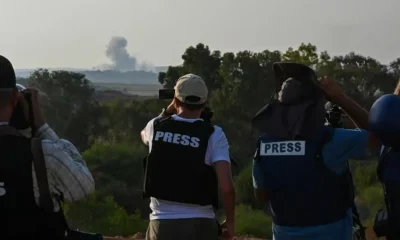
 Politics2 days ago
Politics2 days agoWhy Israel is blocking foreign journalists from entering
-

 NewsBeat14 hours ago
NewsBeat14 hours agoMia Brookes misses out on Winter Olympics medal in snowboard big air
-

 Sports3 days ago
Sports3 days agoJD Vance booed as Team USA enters Winter Olympics opening ceremony
-

 Tech4 days ago
Tech4 days agoFirst multi-coronavirus vaccine enters human testing, built on UW Medicine technology
-

 NewsBeat1 day ago
NewsBeat1 day agoWinter Olympics 2026: Team GB’s Mia Brookes through to snowboard big air final, and curling pair beat Italy
-
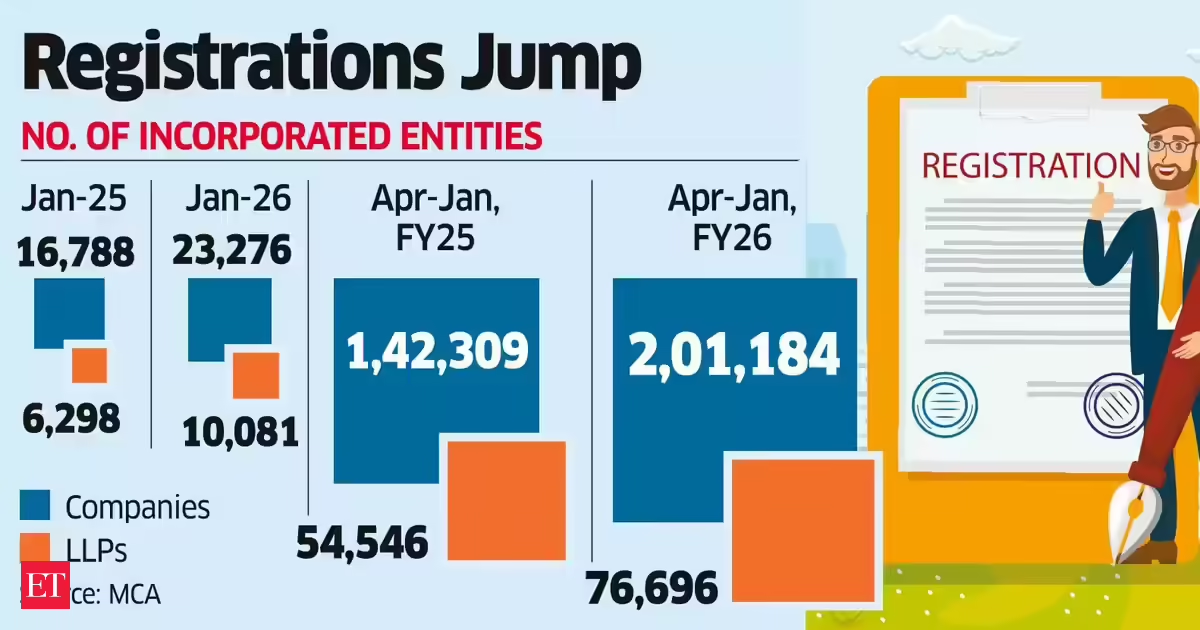
 Business2 days ago
Business2 days agoLLP registrations cross 10,000 mark for first time in Jan
-

 Sports1 day ago
Sports1 day agoBenjamin Karl strips clothes celebrating snowboard gold medal at Olympics
-
Sports3 days ago
Former Viking Enters Hall of Fame
-

 Politics2 days ago
Politics2 days agoThe Health Dangers Of Browning Your Food
-
Sports4 days ago
New and Huge Defender Enter Vikings’ Mock Draft Orbit
-

 Business2 days ago
Business2 days agoJulius Baer CEO calls for Swiss public register of rogue bankers to protect reputation
-

 NewsBeat4 days ago
NewsBeat4 days agoSavannah Guthrie’s mother’s blood was found on porch of home, police confirm as search enters sixth day: Live
-

 Business5 days ago
Business5 days agoQuiz enters administration for third time
-
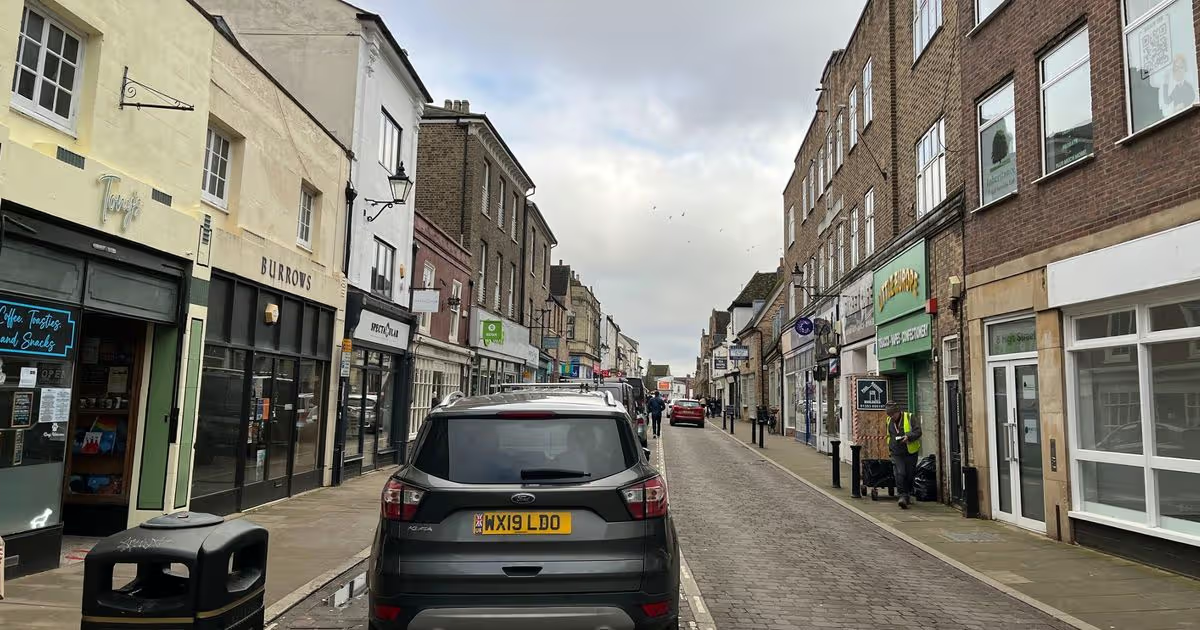
 NewsBeat1 day ago
NewsBeat1 day agoResidents say city high street with ‘boarded up’ shops ‘could be better’
-
Sports13 hours ago
Kirk Cousins Officially Enters the Vikings’ Offseason Puzzle
-

 NewsBeat5 days ago
NewsBeat5 days agoStill time to enter Bolton News’ Best Hairdresser 2026 competition
-
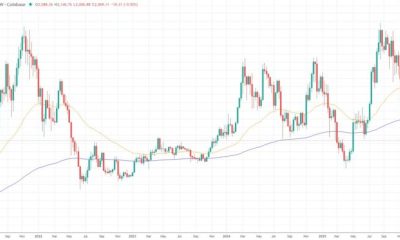
 Crypto World2 hours ago
Crypto World2 hours agoEthereum Enters Capitulation Zone as MVRV Turns Negative: Bottom Near?
-
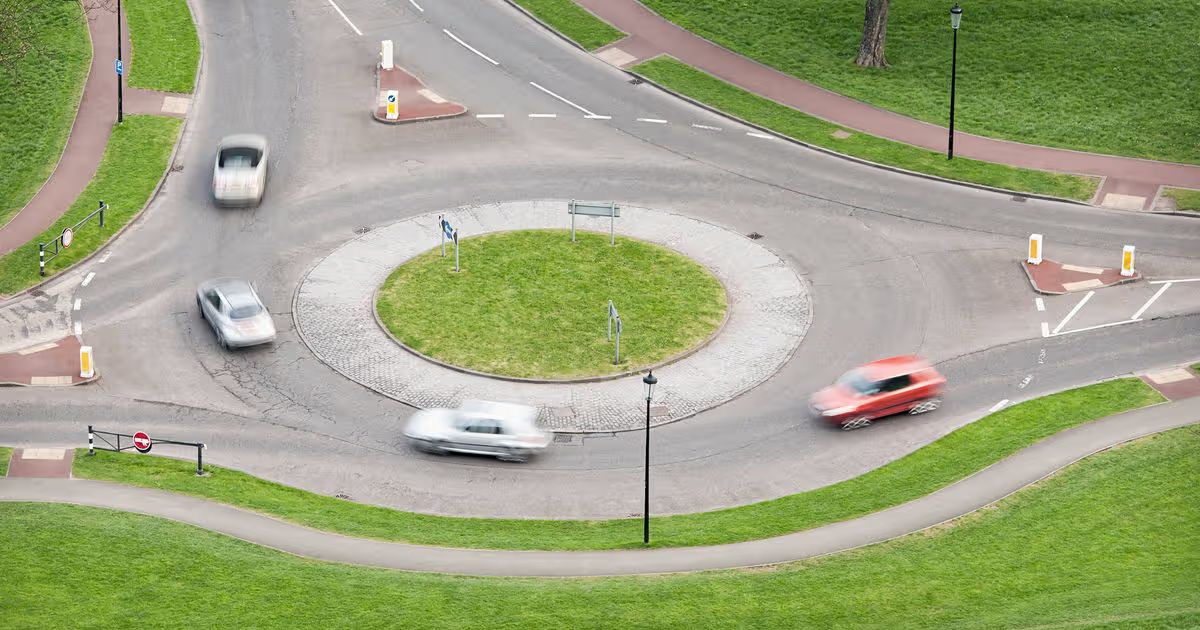
 NewsBeat3 days ago
NewsBeat3 days agoDriving instructor urges all learners to do 1 check before entering roundabout
-

 Crypto World6 days ago
Crypto World6 days agoRussia’s Largest Bitcoin Miner BitRiver Enters Bankruptcy Proceedings: Report








